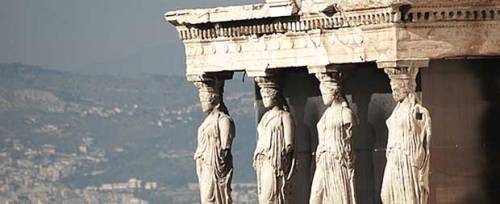I would like to post an expanded version of a short article that I originally shared in November 2013. It fits well with the Easter season. The original title is My Very Own Historical Jesus and can also be found in the archives in its original form. Please feel free to comment. Continue reading
Tag Archives: Studying World Religions
Mundus, caro, et diabolus

Hieronymus Bosch, late 15th century, “Garden of Earthly Delights” detail
Anyone studying the religions of the world will encounter from time to time the notion that all religion is somehow fundamentally anti-human; all religion seems to denounce and find fault with life-on-planet-Earth.
Are there any religions that do not reject our earthly existence?
The translation of the title (above) is: “The World, the Flesh and the Devil”
Filed under Origins, Religious Literacy, Revelation
Tagged as Buddhism, Caro, Christianity, devil, Diabolus, life defeating, mind body, Mondus, spirit body, Studying World Religions, the devil the world the flesh, the flesh, world
Religion’s Roots in Indigenous Religion
The student who is truly attracted to the study of religion will benefit from the enormous number of sacred stories of indigenous religions collected by anthropologists. The roots of religion pass backward from ancient religion through indigenous religion into prehistoric religion. There are hundreds of living indigenous religions and thousands that have faded into extinction. Continue reading →
Religion versus Peace

Interfaith council, publicity photo depicting: Rabbi Yona Metzger, Rabbi Shlomo Amar, Grand Mufti Muhammad Ahmad Hussein, and Catholic and Orthodox representatives
Now that the smoke has cleared, I would like to reference the heated discussion between writer Sam Harris and producer, director, actor Ben Affleck. Mr. Affleck got very annoyed as both religious and secular ecumenical norms were being so crassly neglected by the atheist and the politically incorrect.
Ecumenicism is a movement promoting cooperation and unity among differing religious groups. Ecumenical and interfaith movements have grown up alongside of and are entwined in the academic study of religion and have had a strong influence on how we speak publicly about religion. Continue reading →
Ancient Concepts of Life After Death
When Socrates refers to ‘Hades’ in Plato’s dialogue Phaedo, he describes it as the afterlife reserved for the good; and he describes the good man as the ‘philosopher.’
Throughout Antiquity, there were many variations on the theme of life after death, all of which predate Christianity and Islam. The insistance on a “final judgement” in both Christianity and Islam comes directly from the early civilizations of Mesopotamia, the Mediterranean, and the Levant.
Filed under Origins, Religious Literacy, Revelation
Tagged as classical education, eternal life, Plato, Religion, Socrates, Studying World Religions
The Neverending Story : Sunni and Shi’ite
It is standard these days to describe Shi’ah Islam as a splinter group that formed very early in the history of Islam as a result of disagreement over the rightful successor to the Prophet Muhammad. But the student of religion should consider this explanation as part of the sacred history (traditional narrative) of Islam and not as historical fact.
Filed under Origins, Religious Controversy, Religious Literacy
Tagged as history of Islam, history of religion, Islam, Islamic, Major religious groups, Mosque, Quran, religious controversy, religious sect, sectarian, Shi'ah, Shi'ah Islam, Shia, Shia history, Shiite, Studying World Religions, Sunni, Sunni and Shia
Two Kinds of Religious Texts
When studying religion, either on your own or in university, it is helpful to recognize that there are, almost always, two types of literature associated with a religion, that is, if the religion has a written tradition.
The two types of religious texts are 1) sacred scripture, and 2) non-sacred, but cherished, traditional writings and commentaries.
Filed under Religious Literacy, Revelation, Ways to Learn the World Religions
Tagged as dhammapada, hadith, Hindu texts, Hinduism, Islam, jain scripture, Rabbinic Judaism, Religion and Spirituality, religious texts, religious writings, sacred texts, scripture, scriptures, Studying World Religions, sutra, talmud, World Religions
Modern Religion vs Late 18th century Churches

George Whitefield, preacher of the Christian revivals that became the ‘Great Awakening’ in colonial US.
Many Christian churches of North America have their origins in the eighteenth and nineteenth centuries and my students often asked me whether these are best studied as Modern Religion or as part of Christianity.
The introductory class on religion is not the place to memorize the hundreds of different sects of Christianity or their origins. Later, when studying Christianity in depth, a student can research the details of sectarianism in European churches and the continued splintering of denominations in the Americas.
Transcendental Meditation
I recently went to a screening of a film entitled Meditation, Creativity, Peace for the promotion of the David Lynch Foundation For Consciousness-Based Education and World Peace. The film was put together by film students and featured David Lynch as he toured and talked about Transcendental Meditation.
For anyone interested in understanding religion, in an attempt to start with clarity, I recommend a category of ‘Modern Religion.’ Any religion that has a founder or foundation after the beginning of the nineteenth century should be arranged for study in the category of Modern Religion.
Religious Cult : No Such Thing
One of the best things you can do for yourself as an honest student of religion is to throw away the common concept of a ‘religious cult’.
The student who has accepted my notion of Modern Religion and has discarded the concept of religious cult (or ‘secte’ in French) as a rogue religion, will be able to explore these religions, whether or not these religions function within accepted laws or cultural norms and regardless of their modern expression, denomination, or relationship to the state.
The ‘cult of a god’ is a term that goes to the heart of all religion, both the living traditions and those that are extinct.
Modern Religion
To help you remember the many and diverse religions of the world, my seven categories of all religions past and present offer you assistance and support.
Modern Religion – the last of my categories – allows you to easily isolate the more recent religions from their ancient inspiration. A modern religion is any and all religion that has a founder or foundation after the beginning of the nineteenth century. Modern religion contains at least one, but most often several, of the following: Continue reading →
The Term ‘Abrahamic’
It is endlessly troublesome to create helpful categories for the myriad religions of the world.
The centuries of hostility between the so-called Abrahamic religions originate from their competitive claims to the Hebrew prophetic tradition and from their mutually exclusive claims to the revelations attributed to Abraham and the canon of Israelite prophets. I’m not sure why this category title ever felt right to anyone, religious or otherwise. Continue reading →
Filed under Origins, Religious Controversy, Religious Literacy, Ways to Learn the World Religions
Tagged as Abrahamic Religions, ancient religion, Christianity, Christianity and Islam, history of religion, Islam, Judaism, Major religious groups, Rabbinic Judaism, Religion, Religion and Spirituality, Studying World Religions
Oh, I’ve Heard About Your Religion
My religion told me about your religion! The student of religion is very often discouraged and deterred by the discovery that all religion spends so much time and effort commenting upon, and criticizing the religions of others.

For the good Muslim, it is God who speaks in the Qur’an; it is God who writes the poetry of the Qur’an, and in this poem God mentions the Jewish people and the Christians by name. To be more precise, God devotes more than twenty per cent of the Qur’an to talking about Judaism, Christianity and other religions.
God discusses the failings, or otherwise, of the Sabeans, possibly the Mandaeans, and of numerous ancient religions of various Arabic tribes.
Recipe for Happiness
Most all religions have at one time or another described themselves as a path to truth and a recipe for happiness. As these recipes are believed to come from a spokesperson for the divine, it’s fair to say that some part of religion consists of a ‘how to’ set of instructions, like a recipe, revealed, as it were, from the Divine Chef.
Magic Talk in the Classroom
The terminology we choose in our study of religion can block us from looking closely into the various topics we are hoping to investigate. Uncritical and wonted use of words like ‘magic’, ‘superstition’ and ‘pagan’ consistently send us off in the wrong direction.

The most familiar of these words is the term ‘spiritual’. We sometimes use the term spiritual as synonymous with ‘religious’ and at other times to indicate ‘ethereal’ or ‘non-material’ and at other times to indicate ‘mind and emotion’. Often we wander through these various meanings without taking much care. Continue reading →
Revelation in Buddhism
During my years of teaching, the thoughtful student often asked whether Buddhism could be excluded from the category of religion altogether as there are often no gods or concept of divinity to be found in many expressions of this rather elastic religion.  In many books on religion the authors feel compelled to qualify Buddhism as more of a philosophy than a religion, or to single out Zen Buddhism and similar sects as expressions of Buddhism that are somehow separate from Buddhist religious practice. Continue reading →
In many books on religion the authors feel compelled to qualify Buddhism as more of a philosophy than a religion, or to single out Zen Buddhism and similar sects as expressions of Buddhism that are somehow separate from Buddhist religious practice. Continue reading →
Filed under Origins, Revelation
Tagged as Buddha, Buddhism, studying Buddhism, Studying World Religions
The Pope, The Emperor, and The Other Guy
In the fall of 2006, the Pope of the Catholic Church, in a public discourse, quoted a medieval Byzantine emperor who had declared (hundreds of years ago) that Islam had added nothing new to the world of religious thought.
 Implied in the statement was the idea that much of Islam is found in the beliefs of those who were assimilated into the Arab Empire and that Islam had added only the oppression of the new rulers.
Implied in the statement was the idea that much of Islam is found in the beliefs of those who were assimilated into the Arab Empire and that Islam had added only the oppression of the new rulers.
This quotation caused an outpouring of indignation, with many voices claiming to have been sorely insulted. Of course, the original statement from the late 1300s can tell us quite a bit about the conflicts between empires, the nature of religious controversy and something of the Byzantine mind. Continue reading →
Filed under Religious Controversy
Tagged as history of religion, religious controversy, Studying World Religions










